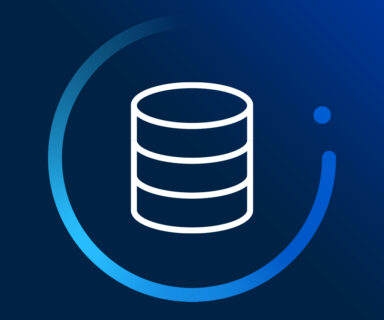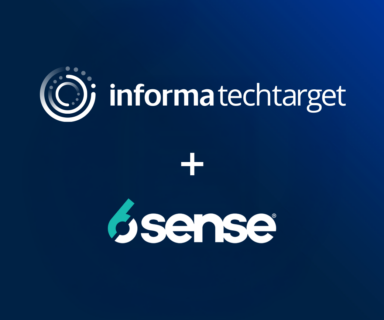
A lot is said about the benefits of ABM, but less is said around the effort ABM requires. ABM is often more work per account than other marketing activities because you’re focusing on a subset of target accounts that are flagged as high value. In order to yield more revenue from this smaller pool of accounts, ABM teams must orchestrate tailored campaigns that speak to a buying team’s true needs.
To succeed with account-based marketing (ABM), practitioners and teams should have the mindset that at first, they might fail fast, but they should fail forward. Starting with a plan and the intention of improving, innovating and evolving will help ABM work for your organization.
Going in with that mindset, intent data can be incredibly successful at empowering improved ABM outcomes. Today we’ll talk through three areas of ABM – activity-based targeting, buying center engagement, and higher-yield enterprise sales activation – where intent data can have an impact.
#1 – More precise activity-based targeting
There are two ways to gain more revenue through ABM: increase the volume of deals from your account list or close deals with a higher average deal size.
When we look for ways to maximize opportunity capture, we need to look at where open opportunities cluster, also known as activity-based targeting. When people show interest in something, they tend to cluster where they can find more information on what they desire. This is especially true when people are interested in making a purchase. This type of purchase-focused behavior is called purchase intent, and as more people become involved in making that purchase, the cluster grows larger.
The challenge is that these people could be your buyers, but they aren’t yet seeking information in your inbound funnel. They may cluster elsewhere, seeking out other funnels to find their information. You lose out when you only focus on your inbound, and not where the active buyers are concentrated. Instead, you need to look for people active in channels showing what you sell.
Many sales organizations spend a lot of time and effort on people who aren’t currently interested, and this creates waste. Intent data can solve this challenge by showing you where there is in-market activity – where buyers are clustering – so you can prioritize your targeting and be very precise as well. By targeting those accounts, your rate of success and time to close are bound to improve, setting your sales team up to close a high volume of deals, in a shorter amount of time.
#2 – Better buying center engagement
When your organization can see where these buyers are clustering, you can begin to think about how to better engage these buyers and buying teams within an account. To maximize your engagement capabilities, you need to understand who the real people are and what roles they hold within the account and buying cycle.
First-party intent data shows you buyers’ real job titles and what type of content they’re reading, so you can develop a robust understanding of who buyers are and what they do in their organization. From there you can focus your outreach and pass them to your SDRs to customize with confidence they’re interested in their pitch.
In addition to seeing active individuals, with intent signals, you can also see buying centers forming within an account. To engage a buying group, an ABM team needs to deliver unique value to the account that differentiates it from competitors. Success here depends on finding combinations of both content and format that bring meaningful ideas together with the members of a potential buying group. Tactics like High-Value Offers (HVOs) and purpose-built webinar series tied to the relevant intent signals from an account have been shown to be especially effective.
#3 – Higher-yield enterprise sales activations
ABM is about driving more revenue from accounts, and a big piece of that success is around sales effectiveness. For sales to be effective, they need to know which buyers within an account to engage, how to engage them and when to engage them.
The earlier Sales can get involved in a buyer’s journey, the more effective they can be. By building buyers’ awareness of an organization and how a solution can solve their problems, sellers can increase the likelihood of ending up on a buyer’s short list. The right purchase intent data shows this early buyer activity, signaling to Sales that it’s the right time to reach out.
We know that high-quality, data-driven SDR outreach has much higher success rates than random, high velocity, and untrained outreach. Because first-party intent has opt-in individuals in it, which means that SDRs can see the individuals within an account and pursue them individual basis. Intent data provides highly personalized insights so SDRs can successfully customize their outreach that speaks to a buyer’s role, interests and needs. The strength of an individual’s intent signal also helps sellers prioritize outreach, to prioritize engagement with individuals that are actively in-market.
To sum it up, intent data helps ensure opportunities don’t slip past our sales reps by helping them better understand their accounts and remove their blindness to accounts they aren’t regularly interacting with.
Change isn’t immediate and won’t happen overnight. When integrating intent data into your ABM programs, it’s important to pay attention to the groundwork involved and keep your mind open to changes in process. Ensuring your marketing and sales teams are aligned with the goals and the data sources they’re using will set your organization up for success with your go-to-market (GTM).
For more insights on how to leverage intent data for better ABM outcomes, watch Intent Monitoring for Strategic Purposes.
How we can help
As a leading innovator in the intent data field with over two decades of experience helping enterprise tech companies with revenue engine optimization, TechTarget possesses the capabilities and knowledge that more teams like yours rely on for guidance, implementation, execution and optimization every day.
To learn more about the topics introduced here and to get started on or improve upon your own intent data journey, speak to a TechTarget representative today.



